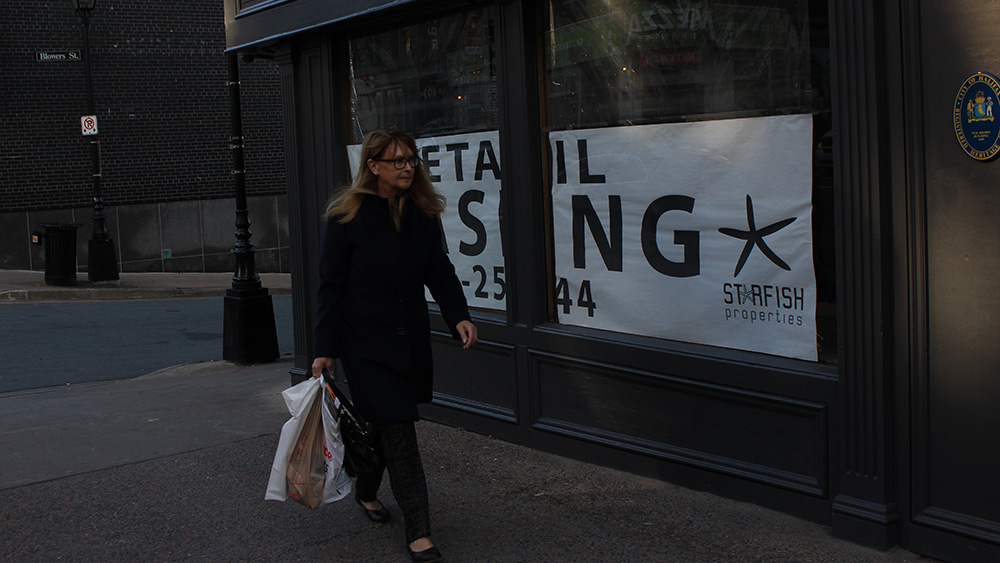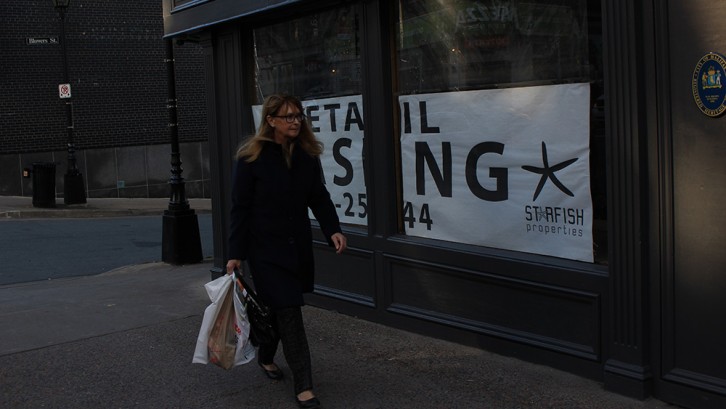Tax Reform
Halifax commercial tax reform report causes mixed emotions
Two business associations express disappointment over the report, while some local businesses are indifferent

caption
Store for lease on Barrington Street Halifax

caption
Store for lease on Barrington Street, Halifax.The commercial tax reform report is causing reactions out of business associations, but not with two local business owners.
The commercial tax reform report was greeted with disappointment by the Downtown Halifax Business Commission (DHBC) and Main Street Dartmouth and Area Business Improvement Association when it came out on Nov. 6.
“The report didn’t really substantially deal with any sort of changes to the tax system,” said Paul MacKinnon, executive director of the DHBC.
Graziella Grbac, executive director of Main Street Dartmouth and Area Business Improvement Association, said the association gave suggestions to city council on how to reform the commercial tax, but the report didn’t include any of those suggestions.
The commercial tax reform report is a set of recommendations to regional council on what tax options would best suit small independent businesses in Halifax.
The report mentions that property taxes are a big concern for businesses, but city council didn’t include them in their recommendations.
City council decided on Nov. 10 they are going to request an amendment to the city charter. They want more control over the tax structure from the provincial government.
Two local businesses, however, were indifferent to the report. Both Mimi Fautley, owner of knitting store, The Loop, and Laura MacLeod, owner of The Old Apothecary bakery, said they do not see the benefit of commercial tax reform.
Both businesses lease their space from landlords and do not believe lowering property taxes will benefit their business.
“It’s very unlikely that if those property taxes were either frozen or went down, that commercial tenants would see that reflected in their rent,” said Fautley.
MacLeod said the property tax is more beneficial to property owners than to small businesses because they are renting and the benefits are not passed on to them.
Grbac disagrees with that. She said local businesses do not understand how property taxes affect their rent.
“They don’t realize the relevance of the tax bill. The [owner] of the property raises the lease every once in a while because they need to keep up with the tax,” said Grbac.
MacKinnon holds a similar viewpoint. He said landlords told him they can’t lower the rent or make money because of property taxes. But MacKinnon also acknowledged there is no quick fix to improving the downtown business economy.
“There is no kind of magical silver bullet approach to any of these issues. Taxes are one part of the challenges that small businesses have,” he said.

caption
Mimi Fautley working at her store The Loop on Barrington Street, Halifax.Fautley and MacLeod both recommended things they thought city council could do to help their business.
“The biggest complaint I hear from my customers as far as coming to my business is parking being an issue. They don’t like paying for parking,” said MacLeod.
Fautley said city council should somehow regulate the relationship between commercial tenants and property owners.
Both Fautley and MacLeod also said construction around their businesses affect the number of customers they get.
MacKinnon said there are a lot of problems facing small businesses, but city council asking for more control over the tax structure from the provincial government is a step in the right direction.

